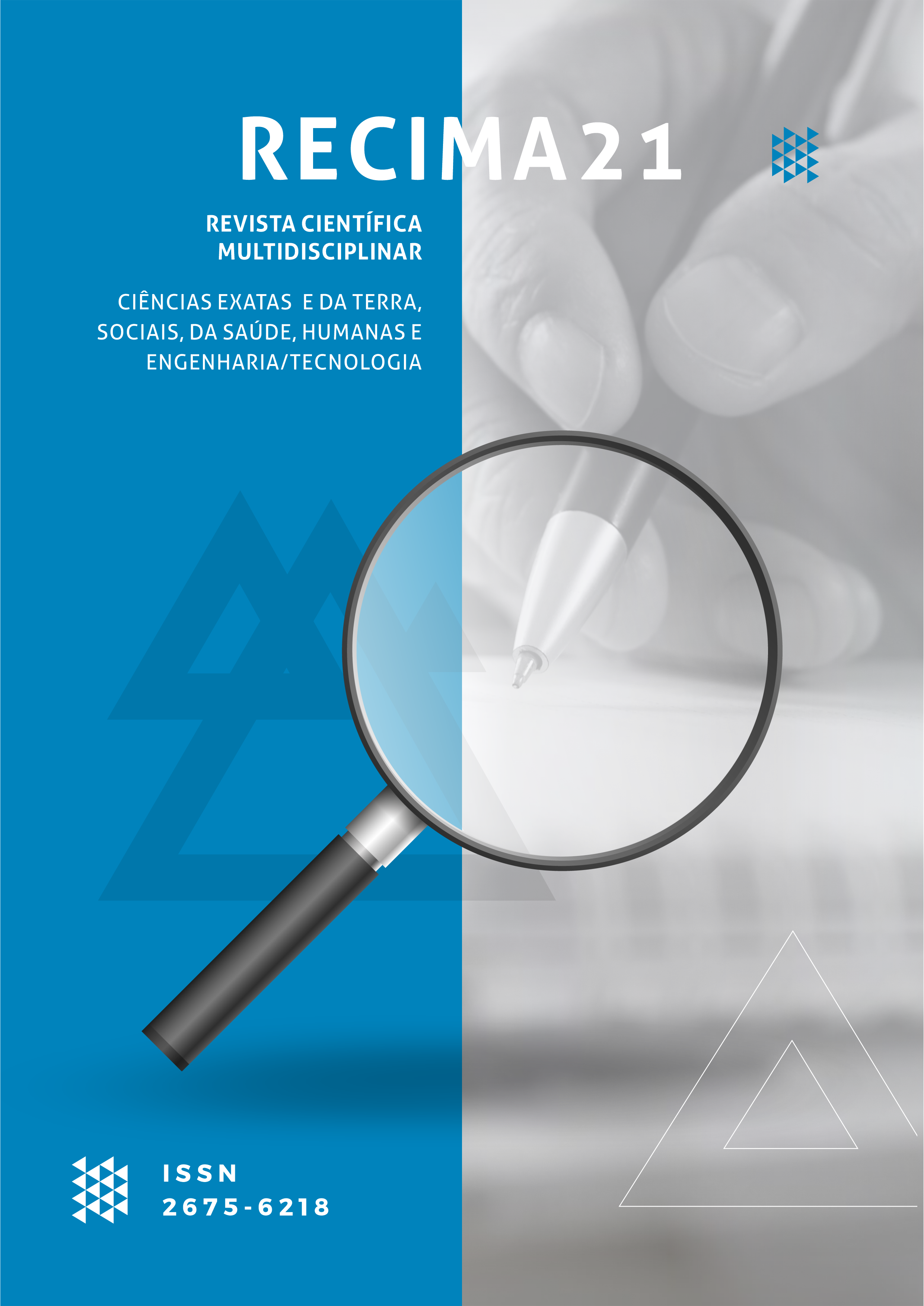INCOMPATIBILITY OF REQUIREMENTS IN THE CEPOM AND THE ISSQN TAXATION
DOI:
https://doi.org/10.47820/recima21.v3i12.2307Keywords:
Tax, Municipal Legislation, Services ProvisionAbstract
This article aims to analyze the arguments that were used by the Federal Supreme Court (STF) to decide for the unconstitutionality of the rule for mandatory registration in the CEPOM under penalty of withholding the ISSQN by the service provider. This rule was instituted by the city of São Paulo in an attempt to combat tax evasion by companies. Given this theme, is noted the importance of this article bearing in mind the new position of the STF regarding the registration in the CEPOM, emphasizing also the importance of the study about the ISSQN, since this tax is in daily contact with the civil society, because at some point people will be consumers of a service provided. For this analysis, the deductive method was adopted as a method of approach, considering that this is a bibliographical research of the narrative type, with a bibliographical review in tax law. Thus, it was from the arguments analyzed that the STF's decision for the unconstitutionality of the rule for mandatory registration in the CEPOM, emphasizing also that the collection of ISSQN is conditioned to the occurrence of its taxable event, i.e., the provision of services. Therefore, the city could not charge the ISSQN based on the mere inexistence of the taxpayer's registration in the CEPOM.
Downloads
References
ALEXANDRE, Ricardo. Direito tributário. 11. ed. Salvador: JusPodivm, 2017.
BRASIL. [Constituição (1988)]. Constituição da República Federativa do Brasil de 1988. Brasília, DF: Presidência da República, [2022]. Disponível em: http://www.planalto.gov.br/ccivil_03/constituicao/constituicaocompilado.htm Acesso em: 14 abr. 2022.BRASIL. Congresso Nacional.
BRASIL. Supremo Tribunal Federal. Recurso Extraordinário 1167.509/SP – São Paulo. ISS – PRESTAÇÃO DE SERVIÇOS – SUJEITO ATIVO – OBRIGAÇÕES ACESSÓRIAS – CADASTRAMENTO – RETENÇÃO – TOMADOR DOS SERVIÇOS DE MUNICÍPIO DIVERSO INCONSTITUCIONALIDADE. 01/03/2021. Disponível em: https://redir.stf.jus.br/paginadorpub/paginador.jsp?docTP=TP&docID=755336200
CARRAZZA, Roque Antônio. Curso de direito constitucional tributário. 23. ed. São Paulo: Malheiros, 2007.
CARRAZZA, Roque Antonio. Curso de direito constitucional tributário. 9. Ed. São Paulo: Malheiros, 1997, p. 288.
CARRAZZA, Roque Antônio. ICMS. 13. ed. São Paulo: Malheiros, 2007.
CARVALHO, Paulo de Barros. Curso de direito tributário. 8. ed. São Paulo: Saraiva, 1996.
COSTA, Regina. Helena. Curso de Direito Tributário. 12. ed. São Paulo: Saraiva Jur, 2022.
HARADA, Kiyoshi. Direito Financeiro e Tributário. 27. ed. São Paulo: Atlas, 2018.
Lei complementar de no 116, de 31 de julho de 2003. Dispõe sobre o Imposto Sobre Serviços de Qualquer Natureza, de competência dos Municípios e do Distrito Federal, e dá outras providências. Disponível em: http://www.planalto.gov.br/ccivil_03/leis/lcp/lcp116.htm Acesso em: 05 abr. 2022.
LENZA. Pedro. Direito Constitucional Esquematizado. 25. ed. São Paulo: Saraiva Educação, 2021.
MINARDI, Josiane. Direito Tributário - 1ª e 2ª fases da OAB. 14. ed. Salvador: JusPodivm, 2022.
MONTENEGRO FILHO, Misael. Curso de direito processual civil, volume 2: teoria geral dos recursos, recursos em espécie e processo de execução. 10a Ed. São Paulo: Atlas, 2014.
MORAES, Alexandre de. Direito Constitucional. 9. ed. São Paulo: Atlas, 2001.
PAULSEN, Leandro. Curso de Direito Tributário Completo. 13. ed. São Paulo: Saraiva, 2022. E-book.
SABBAG, Eduardo. Manual de Direito Tributário. 10. ed. São Paulo: Premier, 2009.
SCHOUERI, Luís Eduardo. Direito Tributário. 11. ed. São Paulo: Saraiva, 2022. E-book.
Downloads
Published
Issue
Section
Categories
License
Copyright (c) 2022 RECIMA21 - Revista Científica Multidisciplinar - ISSN 2675-6218

This work is licensed under a Creative Commons Attribution 4.0 International License.
Os direitos autorais dos artigos/resenhas/TCCs publicados pertecem à revista RECIMA21, e seguem o padrão Creative Commons (CC BY 4.0), permitindo a cópia ou reprodução, desde que cite a fonte e respeite os direitos dos autores e contenham menção aos mesmos nos créditos. Toda e qualquer obra publicada na revista, seu conteúdo é de responsabilidade dos autores, cabendo a RECIMA21 apenas ser o veículo de divulgação, seguindo os padrões nacionais e internacionais de publicação.













